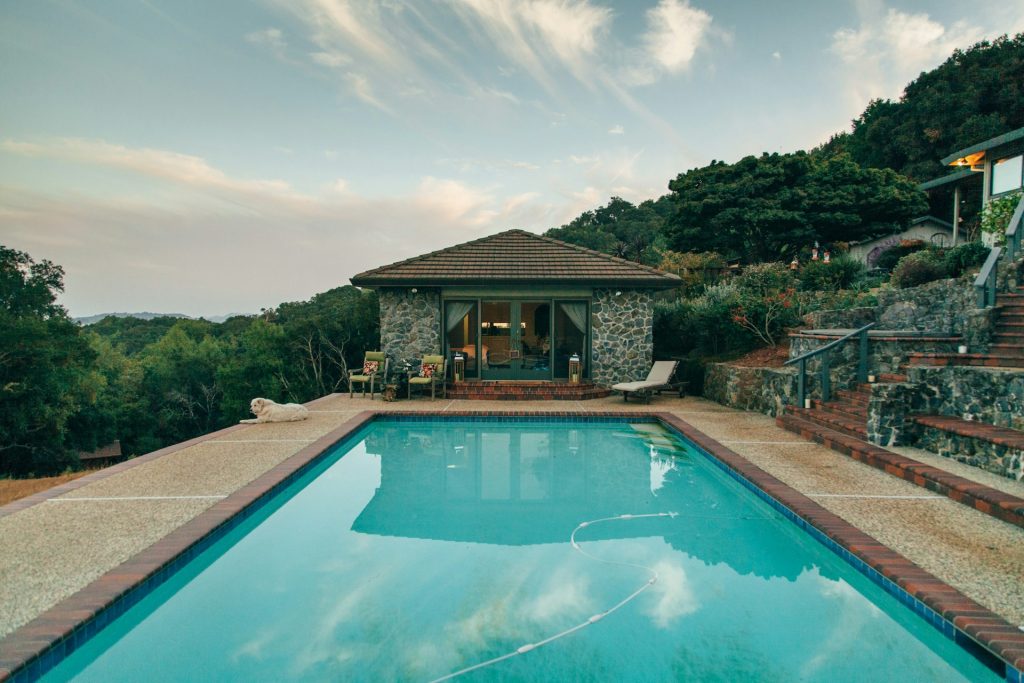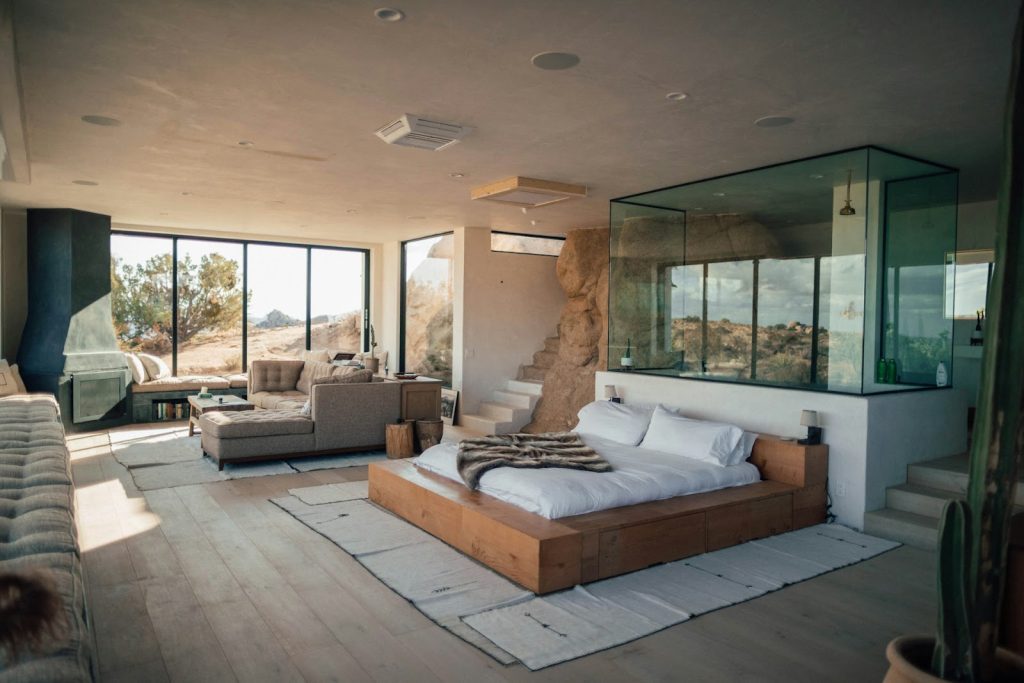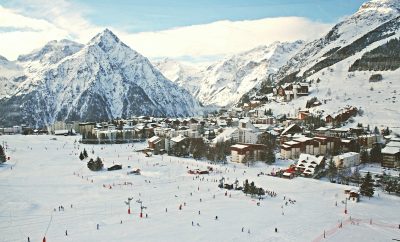Diversifying Investment Portfolio with Luxury Mountain Real Estate: Strategies for Growth and Stability

Investors seeking to both protect and grow their wealth often turn to diversifying their portfolios across various asset classes, a strategy acknowledged for its efficacy in risk management. Luxury mountain real estate emerges as an enticing option within this diversification paradigm, offering a unique combination of tangible asset investment and lifestyle enhancement.
This specific real estate segment has shown resilience to market fluctuations, a fact attributed to the enduring allure and limited supply of high-end properties in sought-after mountainous locales.
Investment diversification is about selecting investments that may not move in tandem, aiming to balance out the risks inherent in financial markets. Incorporating luxury mountain real estate into a portfolio can provide a hedge against the volatility of traditional investments such as stocks and bonds.
These properties can serve as both a personal retreat and an investment opportunity, with the potential for rental income, long-term value appreciation, and tax advantages.
The appeal of luxury mountain real estate as an alternative investment is reinforced by its physicality in an increasingly digital world. Investors find assurance in real estate’s intrinsic value – it’s a commodity that can be seen, touched, and utilized, adding a layer of security to a portfolio that financial instruments alone may not offer.
As investors continue to navigate economic uncertainties, investing in luxury mountain real estate as a means to diversify one’s investment portfolio grows ever stronger.
What Makes Luxury Mountain Real Estate so Popular?
When exploring the realm of affluent investments, luxury mountain real estate stands out as a tangible asset that embodies exclusivity and stability. It refers to high-end properties situated in mountainous areas that offer superior quality, privacy, and breathtaking natural scenery.
These properties are typically considered a luxury real estate investment due to their unique location, upscale amenities, and potential for value appreciation.
Luxury properties in mountainous regions share certain distinguishing features:
- Scenic views: Sweeping vistas of mountain terrain and surrounding landscapes.
- Exclusivity: Located in prime locations that ensure privacy and tranquility.
- Premium quality: High-end materials, cutting-edge design, and top-notch construction standards.
- Luxury amenities: Features such as hot tubs, expansive outdoor living spaces, and bespoke interiors.
- Accessibility: Proximity to outdoor recreation, ski resorts, and sometimes even private airstrips.
Popular locations for luxury mountain real estate
The popularity of mountain properties is evident in numerous regions where the luxury real estate market thrives:
- North America: Notably Aspen, Vail, and the Canadian Rockies.
- Europe: Swiss Alps, French Alps, and Italian Dolomites.
- Asia: Select areas in the Indian real estate market like Shimla and Manali.
Such real estate assets cater to investors seeking a blend of lifestyle and investment benefits.
Advantages of Investing in Luxury Mountain Real Estate

This type of real estate offers several tangible benefits that make it a compelling component of a diversified investment portfolio. These not only enhance the variety within an investor’s portfolio but typically bring the allure of scenic views and exclusive lifestyles, contributing to their value.
Potential for capital appreciation
Properties situated in mountainous regions often experience long-term capital appreciation due to their limited availability and the desirability of the landscape. The property values in such locales are prone to rise over time as they cannot be easily replicated, providing property owners with significant growth in equity.
Rental income opportunities
Investing in luxury mountain real estate can be lucrative due to rental income opportunities. Owners can transform their properties into high-end rental properties, generating a stable and potentially growing cash flow. The unique appeal of mountain locations can command premium rental prices, bolstering an investor’s rental income.
Hedge against inflation
Real estate assets are traditionally seen as a hedge against inflation. As the cost of living increases, so does the value of real estate, maintaining the purchasing power of the investment. Moreover, as rental prices adjust, the cash flow from a rental property could increase, thereby preserving the real value of the income generated.
Seasonal and year-round demand
The demand for luxury mountain properties extends across all seasons. Whether it’s for skiing in the winter or hiking in the summer, these properties can capitalize on seasonal and year-round demand.
This constant interest assists in keeping the occupancy rates high, which in turn supports robust rental yields and underscores the viability of this real estate investment niche in a diversified portfolio.
Risks and Considerations
Before delving into the potential of mountain real estate as a portfolio diversifier, investors should weigh various risks and considerations. Understanding these factors is key to managing risk effectively within the real estate market.
Market volatility and economic factors
The real estate market is susceptible to market fluctuations, which can be influenced by a range of economic factors, such as interest rates and housing demand. Investors in luxury mountain real estate must consider the cyclical nature of property values and how broader economic conditions may affect their investments.
It is crucial to have strategies in place for risk management, particularly in times of economic downturn, when luxury properties may not be as liquid.
Environmental risks and climate change impacts
Investing in mountain properties entails an assessment of environmental risks and the potential impacts of climate change. Natural disasters, such as wildfires or landslides, can pose direct threats to mountain properties. Additionally, changes in climate patterns can affect the desirability and accessibility of these locations.
Investors need to examine these physical risks and consider insurance and other protective measures as part of their risk management strategies.
Legal and regulatory considerations
Luxury mountain real estate is governed by a variety of laws and regulations that can vary significantly from one location to another. Investors should be mindful of zoning laws, environmental restrictions, and changes in property taxes.
Understanding these legal aspects is vital in managing risk, as non-compliance can result in costly penalties and affect the viability of the investment.
Management and maintenance challenges
Maintaining a luxury mountain property can be more complex than managing other real estate investments. Investors might need to hire property managers to ensure the property is well-maintained, especially if it’s a part-time residence or a rental.
Effective property management involves regular upkeep to preserve the property’s value and appeal, and this often comes with increased costs and the necessity to manage relationships with various service providers.
Tactics for Successful Investment

Investors who strategically approach this niche market stand to benefit from its unique value proposition, but it’s essential to understand the key tactics that lead to successful investment outcomes.
By focusing on these tactics and aligning with professional expertise, investors can confidently navigate the complex landscape to build a resilient and profitable luxury mountain real estate portfolio.
Conducting thorough market research
In-depth market research is paramount for discerning the potential of luxury mountain properties. Investors should analyze local real estate trends, economic factors, and seasonal influences that directly affect property values. This is key for making informed decisions.
Partnering with experienced real estate professionals
Navigating the nuances of mountain real estate transactions requires the insights of experienced real estate professionals. Their expertise can be invaluable, particularly when evaluating investment opportunities within real estate investment trusts (REITs) and real estate crowdfunding platforms, which offer diverse ways of entering the market.
Schraner Luxury Realty has been a leading luxury real estate agency for decades. We will be happy to help you if you have any questions about luxury real estate in Verbier, Switzerland, or would like to purchase a property in Verbier and the surrounding region.
Diversifying within the mountain real estate sector
Real estate is a broad asset class, and within it, luxury mountain properties can be further diversified. A robust investment portfolio might include a mix of residential and commercial properties, each offering a different risk profile and return potential. By diversifying within the real estate sector, investors can mitigate risks and tap into various growth opportunities.
Leveraging tax advantages and investment incentives
Investors in luxury mountain real estate should seek to leverage available tax advantages and investment incentives. These tax benefits – including deductions, depreciation, and possibly tax breaks from municipal incentives – enhance the financial performance of an investment. Understanding these fiscal aspects is essential for a comprehensive investment strategy.
Future Trends in Luxury Mountain Real Estate
The luxury mountain real estate market is shifting, reflecting changes in buyer priorities and technological advancements. These transformations are influencing not only the appeal of specific markets and locations but also the features of the properties themselves.
Through an understanding of these key areas, investors can make informed decisions and remain ahead in the dynamic field of luxury mountain real estate.
Emerging markets and locations
Geographic diversification within the luxury real estate domain is seeing new areas emerge as sought-after destinations. The drive for seclusion and natural beauty is promoting investment in less developed mountain regions, which can offer more competitive prices and untapped potential for appreciation.
As population growth pressures traditional locales, investors are exploring these emerging markets to capitalize on rental yields and the expanding luxury market. However, with a smart approach, you can still capture a beautiful property in some traditionally popular locations.
Impact of technology and sustainability on mountain properties
Mountain properties are increasingly being equipped with smart-home technologies and sustainable features to meet the demand for eco-friendly and energy-efficient homes. Buyers now prioritize properties that minimize ecological impact and offer advanced connectivity for remote work and leisure.
This focus on sustainability is not just an ethical choice but a sustainable investment, as such properties can be more attractive in the resale market.
Evolving preferences of luxury buyers and renters
Modern luxury buyers and renters desire personalization, such as wellness amenities and bespoke designs. Properties with home offices are popular, as the capability to work remotely becomes a norm. Moreover, the luxury market is diverging, with some buyers opting for smaller, more manageable luxury homes that offer greater appeal and faster sales.
Luxury Mountain Real Estate Remains a Good Investment
Investors often seek to mitigate risk in their portfolios by investing in diverse assets that align with their financial goals and risk tolerance. Luxury mountain real estate provides a unique opportunity in this regard. Properties positioned in scenic locales tend to maintain value over time, and may even benefit from appreciation due to their sought-after locations.
For those aiming to achieve a diversified investment strategy, mountain real estate can act as a hedge against volatility in other markets. This asset class typically does not correlate strongly with the stock market, which can add stability to an investment portfolio during economic fluctuations.
When considering exit strategies, the investor has several options with luxury mountain properties. These can range from renting out the property for income to selling it for capital gains or holding it as part of a long-term wealth accumulation plan.
Ultimately, adding luxury mountain real estate to one’s portfolio should be done with a clear understanding of how it fits into their broader investment landscape. It is a decision that requires careful thought, but when done correctly, can offer solid footing in an investor’s journey toward financial security.
If you’re interested in buying luxury real estate in the Swiss Alps, Schraner Luxury Realty may have just what you’re looking for. The properties on our list are beautiful, state-of-the-art chalets and apartments that will capture your heart.




